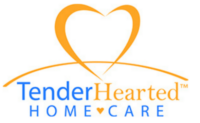Does Sleep Apnea Increase Risk of Dementia?
What do sleep apnea and dementia have in common? It might be more than you think. New studies show that some of the same changes that occur in the brain when an older adult has dementia also appear in people with sleep apnea. If you’ve noticed signs of sleep apnea in your aging relative, this study is just one more good reason for them to see a doctor.
Dementia?” width=”300″ height=”200″ /> Homecare Thomasville NC – Does Sleep Apnea Increase Risk of Dementia?The Sleep Apnea and Dementia Link
Approximately 50 million people worldwide suffer from some form of dementia, 5 million of them are in the United States. Around 70 percent of dementia cases are people with Alzheimer’s disease, a condition that destroys areas of the brain. 18 million American adults are affected by obstructive sleep apnea (OSA).
In the past, OSA has been indicated as a risk factor for conditions like high blood pressure, heart disease, and cancer. More recently, OSA has been implicated in people with dementia.
Researchers in Sydney, Australia wondered what the link between OSA and dementia might be. To find out, they studied 83 people between the ages of 51 and 88 who had reported memory loss and changes in mood to their doctors. All of the participants had screenings and memory tests, including MRIs. In addition, they were tested for OSA by being attached to a polysomnography while they slept.
Researchers observed that those who had decreased oxygen levels overnight had thinner brain tissue in the right and left temporal lobes. Those areas of the brain are extremely important to memory. They are also the areas of the brain that change in people who have dementia.
Signs of Sleep Apnea
Because of the implication of sleep apnea in several serious conditions, knowing the symptoms is important. Symptoms of sleep apnea include:
- Snoring that is loud and happens often.
- Periods in which the person stops breathing and then starts again.
- Trouble remaining asleep.
- Waking up gasping for air.
- Headaches in the morning.
- A dry mouth or sore throat upon waking up.
- Irritability.
- Difficulty concentrating.
Sleep apnea is often treated with a CPAP machine that is used overnight. The machine requires the person to wear a mask over their mouth and nose to help keep airways open. In addition, the doctor might suggest making some lifestyle changes, such as losing weight and getting more exercise.
If your aging relative is diagnosed with sleep apnea, a homecare provider can help them to follow the doctor’s treatment plan. A homecare provider can assist with the proper use of a CPAP machine and with cleaning it. Homecare providers can also help older adults to lose weight by cooking healthy meals and helping them to be more physically active.
Sources: https://www.medicalnewstoday.com/articles/322379.php
https://www.nhlbi.nih.gov/health-topics/sleep-apnea
https://www.mayoclinic.org/diseases-conditions/sleep-apnea/symptoms-causes/syc-20377631
https://www.mayoclinic.org/diseases-conditions/sleep-apnea/diagnosis-treatment/drc-20377636
If you or an aging loved one are considering Homecare Services in Thomasville NC, please contact the caring staff at TenderHearted Home Care today. (704) 612-4132.
- Six Areas Your Loved One May Need Help With During the Early Stages of Alzheimer’s Disease - May 8, 2025
- What Harms Senior Mental Health? - April 23, 2025
- How 24-Hour Home Care Can Protect Your Senior Parent - April 4, 2025

